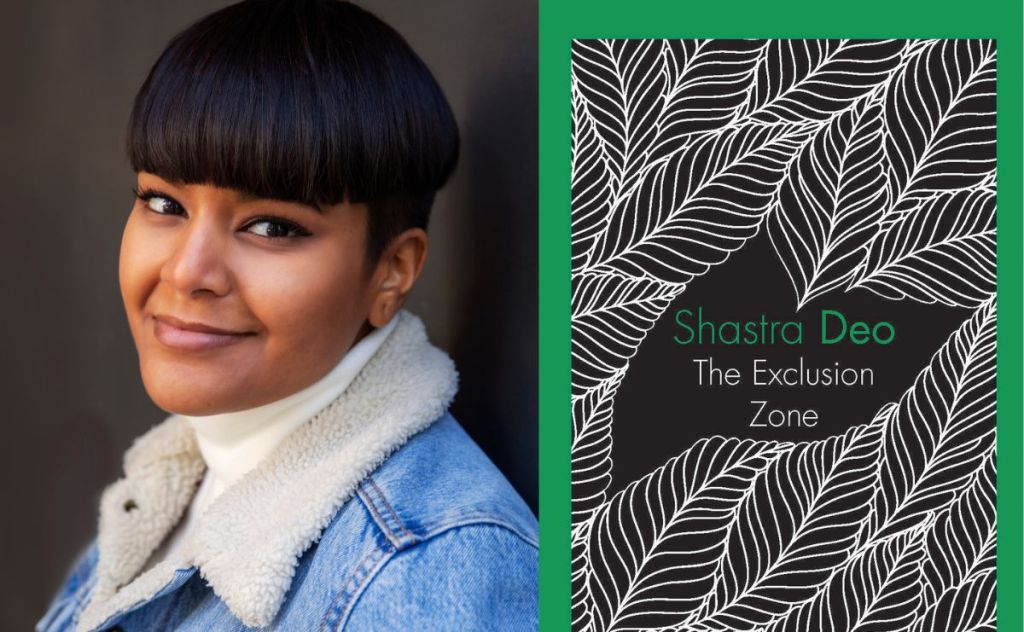The Exclusion Zone ignites the imagination through delicate phrasing and diverse literary techniques. Author Shastra Deo’s substantial comparisons – metaphors within metaphors – allude to composite meanings in which ‘there are ledges in time on which it is safe yet to stand still’. Surface levels are quantifiable; probing the depths, however, reveals intangible aspects of humanity where ‘a prophecy is only as good as its seer, and no witness / is ever on time’.
The tricolour cover guides the eyes upwards to the tips of the outlined leaves, promoting a sense of lifting. The central space (featuring the author’s name and book title) provokes a sense of depth – a promise of riches hidden beneath – tempting the reader to discover that ‘the most loving / words I could give you were knowledge’.
Deo writes in riddles, leaving the audience to instigate ‘a memory in its becoming’ by bringing themselves to the narrative to fill in the gaps. In the first section, ‘The Exclusion Zone’, the poems about nuclear disasters and war have a sense of despondency – this author feels deeply. The middle section, ‘The Game Room’, is heavily inspired by video games. ‘The Lighthouse’, the final section, delves into themes of family and love. Nature and animals permeate the whole text.
This poet plays with form to the most delightful results, encouraging the audience to consider fresh perspectives. Poem structures are expertly manipulated to bring freshness and vitality to composition. The predominant free verse form diverges into non-standard shapes; ‘Go to page’ references add the element of play by tempting readers, in a choose-your-own-adventure style, to jump around the book in such a way that ‘a border is marked only by passing / through again and again’, the many symbols layer meaning, the objects in listicle poems sometimes appear quite randomly connected, encouraging the reader to ponder aspects of commonality.
Of particular note is ‘Frameshift Mutations’, which is written entirely in three-letter blocks, the lines becoming increasingly distorted. This unusual spacing invites the audience to pore over the carefully selected words thoughtfully, digesting multifaceted connotations to garner meaning hidden within, as the writing becomes as misshapen to look at as the mutations it is cleverly relating.
The author is clearly enthralled with linguistics, comparing language elements to telling fortunes through unique tea brews in ‘Learning a Dead Language’. The poem ‘Shastra Deo’ explores etymological associations of the author’s name, very impressively scrutinising her search for personal identity through the exploration of language origins.
Read: Book review: A Country of Eternal Light, Paul Dalgarno
This slim volume welcomes readers to revel in the anticipation presented by Deo in her exploration of a range of themes through lavish form. It is a call to be ‘caught in the act of seeing’, witnessing Deo’s adeptness at ‘turning one thing to another’. Not an easy read – some of the depictions are confronting – it nevertheless enchants the audience, to ultimate reward.
The Exclusion Zone by Shastra Deo
Publisher: UQP
ISBN: 9780702265518
Format: Paperback
Pages: 104pp
Publication date: 31 January 2022
RRP: $24.99
.





